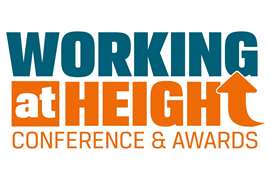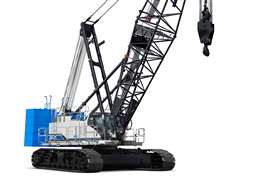Surviving the recovery: a guide from Will Leftwich and Peter Thomas of WL Associates.
28 September 2010

Before the recession the aim was profits growth. During recession the aim was to remain cash positive. Businesses now face the task of doing both simultaneously. Will Leftwich and Peter Thomas of WL Associates look at the dangers as rental businesses emerge from recession.
If your business is showing distinct signs of improvement and you are considering any form of expansion, investment in stocks or additional resources, then beware - statistically, your business could be at greater risk of disaster in 2010 than at any time during the past two years.
Assuming we are emerging from recession, then we would do well to turn to our history books and note that more companies went bust coming out of the last recession than were lost during it. The reason is well known - overtrading, caused by a mix of undercapitalisation and overly rapid growth. This article advises how those risks may be minimized to achieve ongoing organic growth and survive and prosper.
A simple example of overtrading in a manufacturer occurs when a business accepts a contract but finds the resources required to fulfil it in terms of raw materials and people costs are greater than its funding capability allows. At least at contract level a manufacturer hopes to recoup those variable costs immediately and in full from the customer. A rental business cannot do that as its rental income is a fraction of the cost of goods involved in any transaction.
What is clear is that over the past 18 months many businesses have struggled simply to survive, having suffered turnover drops of 30% or more, and many are still struggling. In the rental sector as a whole depot numbers and staffing, alongside capital expenditure and rental fleets, have all been slashed, though few businesses have failed. Many businesses have been forced to rearrange and renegotiate their debt.
2010 will without doubt be challenging, and two factors in particular will dictate how rental businesses cope. First, their current positioning; not just the headroom available between actual and available borrowings, but how intelligently they cut resources in the recession so that the remaining resources generate best value. Second, and more important over the longer term, is how they harness and increase their resources to attack the market in 2010.
How should a business plan a return to an objective of profits growth? As we all know a rental business generally has little in the way of an order book and is both capital and people intensive. Ultimately, no matter how aggressive or proactive a business is in its marketplace, all it can do is react to its own order book and turnover trends to match its capability (such as stocking and staffing levels) to meet expected demand. Its planning and risk management must take into account the extremely fragile economy that surrounds us, and above all it must avoid overtrading.
Before the recession the aim was profits growth. During recession the aim was to remain cash positive. Businesses now face the task of doing both simultaneously. There isn't a separate school of management to guide us in this. What is needed is simply good business practice.
The keys to success will be to retain the tight controls introduced during the recession, and to place intense focus on planning and attention to detail. As ever there are two routes to growth, which are not mutually exclusive: by acquisition and organic.
Growth through acquisition may appeal to many businesses as a fast track route to repair the ravages of the recession. There is likely to be good value available as price expectations will be more realistic, and valuation by recent earnings multiples will often be a non starter, thus putting the seller at a disadvantage.
Those with funding available and the opportunity to offer a mix of cash and shares - and possibly ongoing employment to an owner/manager - may find best value. The key to successful acquisitions will be due diligence focused on the strength and longevity of the income producing ability of the target.
To achieve sound ongoing organic growth a business will require: a) consistency of purpose and sound staff communications; b) sound internal controls, particularly over cash flow; c) intelligent and cost effective use of IT and marketing; and d) continued innovation.
Consistency of purpose requires good strategic planning. It is now vital that the objectives of the business and its planned development path are clearly laid out by top management and pursued. The staff of most businesses will be suffering a ‘bunker mentality' having been battered by rounds of redundancies and the persistent threat of job loss. Over the last 18 months most businesses, in the struggle to survive, simply dumped whatever aims, strategies and ambitions the company held pre recession. Employees are a business' most important asset and they must understand and be enthused about their role.
Sound Internal controls will be of paramount importance as your business grows. Retain any pay freeze by all means, but offer inducement to employees via better performance related pay in the form of open ended bonus and incentive schemes based on measurable profits improvement rather than just turnover.
The controls imposed over cash during the recession must be retained. It is vital that only key, nominated managers can open vendor accounts, and a firm grip must be maintained over the placing of orders. This is particularly important for capital expenditure or any other long term commitment. Lease rather than buy.
As turnover grows it is vital the business maintains control at the customer level over prices, discounts and rebates. Walk away from unprofitable business, because the old maxim that ‘turnover is vanity and profit is sanity' has never held more truth than in today's market.
Above all keep seeking to improve your processes to drive cost out. It is imperative that quality is not just maintained but enhanced. On the supply side look for quality and durability rather than buying just on price alone. Long term supply arrangements will bind suppliers to you, even if you refuse to give the quantity commitments the supplier will be seeking.
Now more than ever the intelligent use of marketing and IT is essential, often in combination. Improve your web presence and capability, and use IT to maximise efficiency and improve communications for your staff, customer and suppliers.
Ensure all the capabilities of your IT systems are used. It is amazing how many businesses do not make use of the functionality available in their proprietary software. If it's within your capability make maximum use of both intranets and extranets. Use the web for ordering and payment. Use facilities such as Skype to reduce meeting costs, and try on line recruitment sites rather than agencies.
Most employees will, because of the recession, be very keyed in to the requirement to save money and minimise cost, so make use of that. If depots are looking very tired, consider undertaking a very low cost refurbishment. Focus on the basics such as cleaning the floors and windows and keep them clean; paint the walls, doors and ceilings; clean strip lighting covers and replace old bulbs/ tubes. Some of these simple disciplines may have suffered during the recession.
Many rental business will, as demand grows, find their reduced equipment fleets have a relatively high average age, pushing up break down rates and maintenance costs. At the product level stockholdings are likely to be out of balance to demand either locally or as a whole, pushing up transport and distribution costs. This will remain the case until stocks are rebalanced through re-investment. These ancillary costs often cannot be avoided, though, if you haven't already done so, now might be a good time to prune your rental fleet of low margin or high maintenance cost items. Close discipline in purchasing proven products with good ROI is essential in rebuilding profits. That is not to say risks cannot be taken, and although the bulk of reinvestment in value terms must be low risk, ongoing innovation is essential for the long term. Businesses have to be risk aware rather than risk averse, so continue to innovate across the board, but in intelligent low cost or low risk ways.
From this point on, I would suggest, in the words of Charles Darwin, "It is not the strongest of the species that survives, nor the most intelligent that survives. It is the one that is the most adaptable to change." In business that will mean successfully managing the transition from recession to growth.
The authors: The authors are Peter Thomas and Will Leftwich. Mr Thomas is a qualified accountant who was finance director at HSS Hire from 1992 to 2004. Since 2004 he has worked with Chobham Consulting. Mr Leftwich, founder of Will Leftwich Associates (WLA), has 27 years experience in the rental industry, consulting internationally on operational management, health and safety and business development. Contact WLA at: Tel: +44 (0)121 242 5196, E-Mail: will@wlassociates.co.uk






